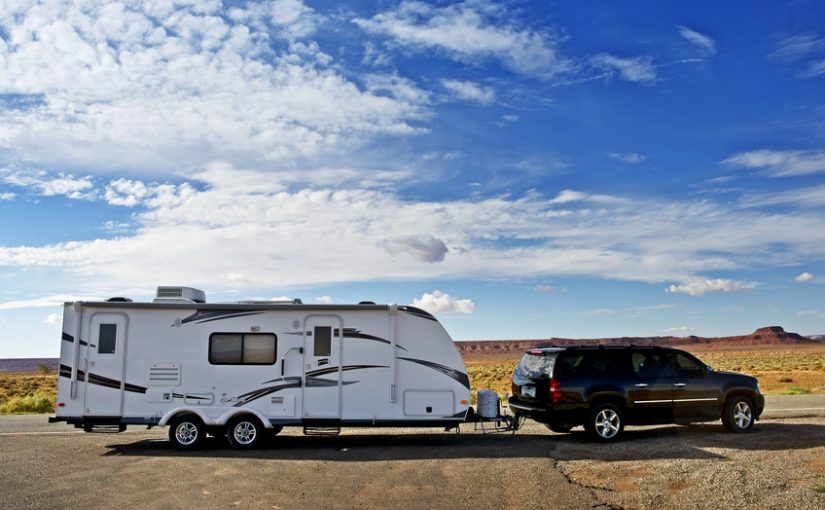
No matter how fast you are going, it takes a ton of power to slow down the massive weight of a tow vehicle and its trailer. You need more than the tow vehicle’s brakes. You need a complete trailer brake system. It is estimated that only about 12 to 15 percent of a trailer’s weight should be resting on the hitch of the tow vehicle.
Types of Trailer Brakes
Surge brakes: a self-contained, hydraulic braking system. The brakes are applied by using the trailer’s own weight to slow the movement. When you step on the vehicle’s brakes to slow down, with this type of non-electrical trailer brake system, a hydraulic cylinder is compressed and pressure is transferred to the trailer brakes which slows down the trailer.
Electric trailer brakes: electrical power is used to tow the vehicle. An electric trailer brake system electrically connects to the tow, activating electromagnetic brake drums. The driver then has the control to apply the brakes willingly.
For an electric trailer brake system to work, the tow vehicle must also be equipped with a trailer brake controller.
What is the Best Type of Trailer Brake Controller?
With a trailer brake controller, the driver can not only activate the tow brakes on command but the driver can also monitor the trailer’s activity from the vehicle’s cab.
There are two trailer brake controllers to consider:
- Inertia-Based Trailer Brake Controller: also known as a proportional brake controller that uses an accelerometer, an electrical component to sense the inertia, or idleness, of the tow vehicle. When the brake is activated, the brake controller applies pressure to the trailer brakes depending on the vehicle’s momentum.
- Time-Based Brake Controller: the trailer brakes are activated immediately when the driver hits the tow vehicle’s brakes. Pressure is then applied to the trailer brake system slowly over time and the time is dependent upon what settings the driver initiates. It is important to note, that time-based brake controller systems are not as precise as inertia-based brake controller systems.
When shopping around for your trailer brake controller solutions, we offer a wide range of products for your towing safety, including brake controller wiring, electronic trailer brake controllers, trailer sway control hitches, and much more.
Hayes Towing Electronics Products are Proudly Made in the U.S.A. and In-Stock!





